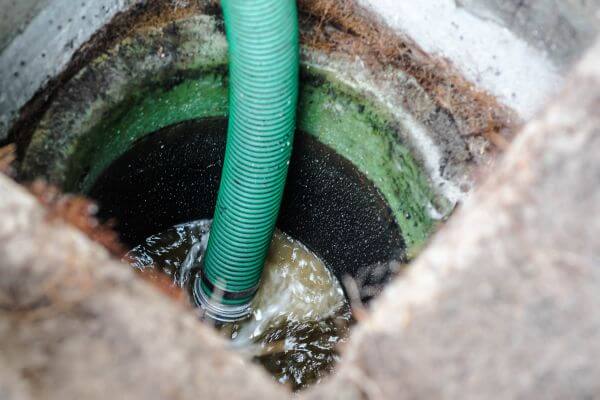The septic tank is a vital system for wastewater treatment in areas where there is no conventional sewerage network. However, for it to function optimally and have a long service life, it needs to be properly cared for. In this guide, you will find out which products should never end up in the septic tank and why it is essential to avoid certain chemicals and objects that can damage it.
Why is it important to keep the septic tank in good condition?
Before listing the products that should not be disposed of in the septic tank, it is important to understand the importance of this system:
-
Prevents pollution of the environment: The septic tank treats wastewater, separating solids and liquids to prevent pollution of soils and aquifers.
-
Protect your home or business: A failing septic system can lead to clogs, odours and even sewage overflows.
-
Saves costs in the long run: Preventive maintenance is cheaper than expensive repairs or emergency cleaning.
-
Guarantees the health of the family: A properly functioning septic tank prevents the proliferation of bacteria and exposure to sewage.
Products that should never go down the septic tank
The following are the main categories of products that should not be disposed of in the septic tank. Doing so can cause blockages, damage the biological balance and affect wastewater treatment:
Solid and non-biodegradable waste
-
Wet wipes and nappies: Although some wipes are advertised as ‘biodegradable’, they take a long time to decompose and can form plugs.
-
Pads, tampons and pads: These products tend to absorb fluids and do not degrade easily, leading to blockages.
-
Plastic objects: Bags, wrappers or cotton swabs should not be flushed down the toilet as they do not flush.
Important: All these elements generate blockages in the outlet pipe or inside the pit itself, making the separation of solids and liquids difficult and causing blockages.
Aggressive chemicals
-
Excessive bleach: Moderate use may be tolerable, but continuous build-up of bleach kills the bacteria responsible for breaking down organic matter.
-
Solvents and paint: These chemicals are highly polluting and alter the biological activity of the septic tank.
-
Drugs and antibiotics: Flushing medicines down the toilet can change the bacterial flora in the pit and impact the environment.
To learn more about how the use of chemicals influences the health of your septic tank, you can consult the official recommendations of the EPA (Environmental Protection Agency). In their guide, you will find guidelines for responsible maintenance and a list of substances that could seriously harm the bacterial balance of your installation.
Tip: Use biodegradable cleaning products and avoid dumping industrial or highly toxic chemicals.
Cooking oils and fats
-
Vegetable oils: When they cool, they solidify and stick to the pipe walls, facilitating the formation of blockages.
-
Fat residues: Contribute to the creation of a slag layer on the pit surface, hindering proper oxygenation and the biological digestion process.
Alternative: Store fats, oils and grease in separate containers for recycling or disposal at council-designated collection points.
Animal waste in large quantities
-
Spoiled food waste or pet faeces: Although they are organic matter, in excess they can overwhelm the capacity of the septic tank. Their rapid decomposition produces gases and alters the balance of micro-organisms.
Recommendation: Deposit this waste in special biodegradable bags or in the organic waste if it is small in quantity.
Consequences of discharging prohibited products into the septic tank
Violating the basic rules of septic tank care entails multiple risks:
-
Frequent blockages: Non-biodegradable elements accumulate and block water circulation.
-
Bad smells: When bacterial activity is unbalanced, the decomposition of waste generates gases with very unpleasant odours.
-
Increased maintenance costs: The septic tank requires more frequent cleaning to remove accumulated objects and substances.
-
Danger of seepage: Excessive pressure or saturation can cause cracks in the structure, leading to seepage of wastewater into the subsoil.
How to protect and maintain your septic tank?
To extend the life of your septic tank and minimise risks, it is essential to adopt healthy habits:
-
Separate waste: Set aside a specific bin for tampons, wipes and other non-biodegradable waste.
-
Check and clean regularly: Hire specialised services to carry out inspections and septic tank emptying at recommended intervals.
-
Use environmentally friendly products: Opt for low-toxicity degreasers and soaps. This maintains the bacterial flora and facilitates the decomposition process.
-
Control the disposal of oils and fats: Set aside a container for used cooking oil and take it to a clean point.
If you require a more in-depth service, we recommend our septic tank extraction and cleaning services, where you will find detailed information on the process and the ideal frequency of maintenance to ensure that your installation functions optimally.
In conclusion, keeping a septic tank in good condition does not require a great deal of effort, but it does require knowing which products to avoid. Remember that solid waste, aggressive chemicals, grease and non-biodegradable objects are the main enemies of this system. By following these guidelines and carrying out regular checks, you will guarantee optimum operation and prolong the useful life of your installation, avoiding unnecessary costs and health problems.


Recent Comments